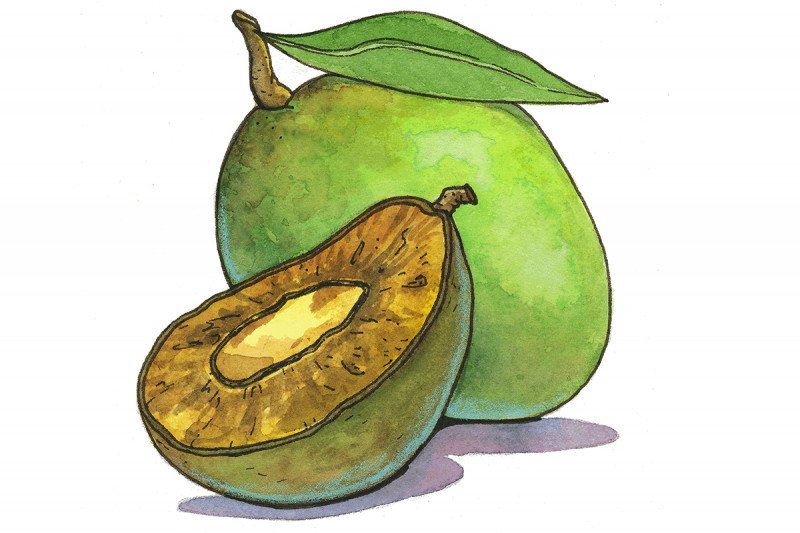
Common Names
- African mango
- Bush mango
- Dika nut
For Patients & Caregivers
Tell your healthcare providers about any dietary supplements you’re taking, such as herbs, vitamins, minerals, and natural or home remedies. This will help them manage your care and keep you safe.
What is it?
The seed extract of African mango may support weight loss, but high-quality studies are needed.
The bark of African mango has been used in traditional medicine for stomach and intestinal ailments, pain, and infections. The seed extract is promoted as a weight loss supplement due to its potential to reduce sugar and cholesterol absorption, but this has not been adequately studied. In addition, side effects have been reported and it may interfere with the absorption of other medications. More studies are needed to ensure that this product is safe and effective in humans.
What are the potential uses and benefits?
- Weight loss
Most studies are small and of poor quality. High-quality studies are needed. - Lower cholesterol and blood sugar levels
Data are limited and high-quality studies are needed. - Diarrhea, colic, dysentery
Although used traditionally in Africa, data are lacking to support these claims. - Pain
Data are lacking to support this use. - Infection
Lab studies suggest antimicrobial effects, but this has not been studied in humans.
What are the side effects?
- Gas
- Headaches
- Difficulty sleeping
Case report
Kidney failure: In a 42-year-old patient who became dependent on dialysis following 2.5 months of using an African mango herbal medicine.
What else do I need to know?
Do Not Take if:
- You are taking antidiabetic medications: Rat studies suggest African mango may further lower blood glucose levels. Clinical relevance has yet to be determined.
For Healthcare Professionals
Brand Name
Scientific Name
Clinical Summary
African mango is a plant native to Central and West Africa. The fruit is consumed as food while the bark and seeds are used in folk medicine to relieve pain and gastrointestinal ailments. The seed extract is marketed as a dietary supplement for weight loss.
Preliminary studies suggest that African mango bark has antimicrobial (1), analgesic (2), and anthelmintic (12) effects. Its seed is rich in fiber and may help slow gastric emptying which results in gradual absorption of sugar, thereby decreasing blood glucose levels in diabetics after eating (3). Although the seed extract may have positive effects on obesity and cholesterol levels (4), most studies are small with poor methodology (13) (14) (15). Larger trials are needed to examine safety and benefits of this fruit extract as a weight loss supplement.
Limited human data suggest that African mango seed extract is well-tolerated, but adverse effects have been reported in clinical trials.
Food Sources
The fruit of African mango is consumed as food in West and Central Africa.
Purported Uses and Benefits
- Weight loss
- GI problems
- Pain
- Blood glucose
- Lower cholesterol
- Infections
Mechanism of Action
In vitro, the African mango seed extract can block adipogenesis through downregulation of peroxisome proliferator-activated receptor gamma and leptin, and upregulation of adiponectin (7). It also improved body weight, fat, and waist circumference as well as plasma total cholesterol (3), blood glucose, C-reactive protein, adiponectin, and leptin levels in humans (4). The extract is high in fiber and thought to help lower cholesterol levels by binding to bile acids (3).
Analgesic components of the bark are not yet known, but the aqueous extract had stronger effects than the ethanolic extract in animal studies (2). A methanolic bark extract showed antimicrobial effects (1).
Adverse Reactions
Herb-Drug Interactions
Antidiabetic drugs: Rat studies suggest African mango may have an additive hypoglycemic effect (5). Clinical relevance has yet to be determined.